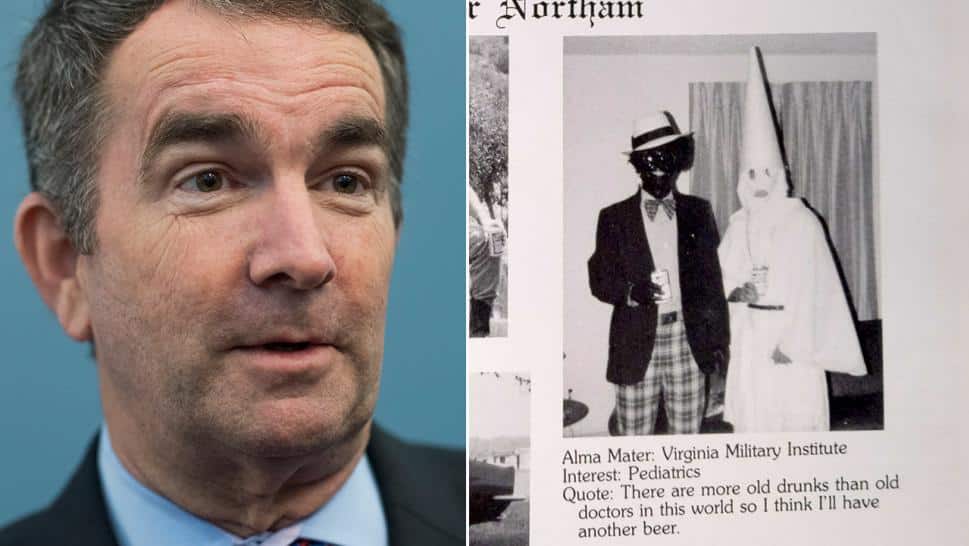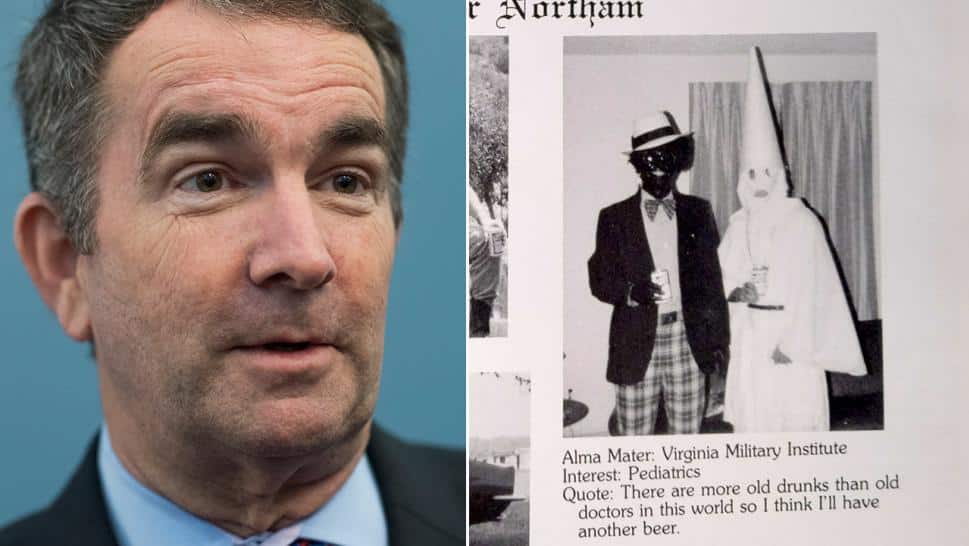We live in an age when one’s past is dragged up by those with ill intent to confront one’s integrity in the present.
If you worked in Asia in the 1980s or earlier, you likely remember a popular toothpaste called, sadly, Darkie. It featured a caricature of a black-faced minstrel performer on the label, with shining white, white teeth.
I have an old Polaroid photo of a very young American diplomat from that era, now a senior official, dressed as that logo, complete with blackface and a top hat, from a long-ago Halloween party. Others present were dressed as local characters, logos, kind of a theme. One person was done up as the Frito Bandito, a caricatured portrayal of Mexicans. The black-faced diplomat was not a racist then and is not now, actually has done some important things for the State Department at some personal risk in terms of getting it to treat its people better. Most today would describe him as “woke.”
Yet I am sure the NYT, or if not them, TMZ, would rush to publish the photo and the diplomat would be pressed to resign. His career would be impacted, his decent work stopped, and none of that would have a whit of any effect on racism in America. Unspoken is the idea that the same guy who wore blackface then is the same guy who is doing good things today. You just know something more about one evening long ago that now seems to matter so much when it doesn’t matter at all.
I have no intention of revealing the photo from three decades ago. But we live in miserable times for this kind of thing when judging someone based on 30 years of their life seems to make less sense than picking something from 30 years ago and ignoring everything else since.
Our society’s current solution is to selectively allow offenders to apologize, often accompanied by a sizable donation to some appropriate charity. Kevin Hart was offered the chance with hosting the Oscars as his prize, Louis C.K., not so much. Al Franken’s time came too soon; today he’d likely be let off by the mob with a heartfelt mea culpa; one can see the tears behind those smug glasses.
But overall the idea of apologizing as a work-around is a bit of a strawman, a cheap trick to somehow drag the discrete events of the past into the present day — well, he did XYZ in 1984, but he continued not to apologize for the last 35 years! And it offers the mob another chance to judge; see, it’s about something happening today (the apology) and not an event from when TV was in black and white! Yet in one case it was presented as enough to derail a Supreme Court nomination and in another it is dismissed as a political smear.
Anybody can say they’re sorry, especially under the gun of the social media-regular media mob that passes judgement on these things. What might make more sense is to look for are amends, what someone has done with their life since some bad thing. Are you a better person? Are you still espousing racism? What have you done with the years? Oh, but that’s complicated. Easier to snarl at a old photo and tweet.
Inside the world of security clearances, where practicality often still overrules mob shoutdowns, standards have evolved. When I joined the State Department during the Reagan era, you could not get a clearance if you admitted to smoking a joint, and you certainly could not be cleared if you admitted to being gay. Same for holding significant debt, which supposedly made you vulnerable to Russian spy payoffs. Heavy drinking? Well, that was almost part of the job description and was generally overlooked. It got to the ridiculous point where only good liars, people from strict religious backgrounds, and folks who could hold their liquor could pass.
If today debt was a show stopper the vast majority of young applicants, with their massive student loans, would be denied clearances. Limited illegal drug use in the past is not a problem in most cases, and we all know of the 180 degree change on LGBT status. There are still showstoppers in the clearance process (having relatives in “bad” countries is a huge issue as more and more first generation Americans, some with critical language skills, seek clearances,) but the emphasis is now on holism, a long view of a person’s life that looks for trends and patterns instead of hyper-focusing on singularities.
Few claim Northam in blackface is a good thing. The real question is at what point do we judge, a single point in the past or the sum of a man’s life. I don’t know much about his work in the last 35 years, but that seems a more reliable indicator of how he’ll serve as governor (the actual issue) than a photo from whenever. Northam resigning does not erase racism of the past, and it does nothing practical about racism today. He just joins the crowd of those sacrificed at the altar of identity politics, a feel-good to the many who only seem to have realized these issues exist since Trump was elected.
See, it is not like this issue of how the past affects the present is new; we’ve just resolved it more practicaly in other iterations. How many states are seeking to allow felons to vote again? Parole, expungement, time served — people who have committed actual crimes, even murder, get to a point where they can move on.
Our tolerance for illegal drugs has followed a similar path. Decades ago, Bill Clinton was confronted with accusations he smoked marijuana. To save himself, he came up with the line that while he may have once held a joint to his lips, he never actually inhaled (Clinton would employ similar word play later in his career over whether a blow job constitued sex.) Fast-forward to candidate Barack Obama, who early on casually admitted to smoking weed, and even experimenting with other drugs. The public response? Meh. People grow, people change, that was then.
The alternative is to allow the mob greater control. With Facebook turning 15 years old today, politicians on the rise will find more and more of their pre-celebrity lives documented. Will we band together online to hunt down every person who ever did anything wrong and drive them out of home and job in some Great Cleansing? What happens when definitions of “wrong” morph? Is such a mob vetting likely to bring better people into government, or send them running?
Unspoken is the idea the same guy who wore blackface then is the same guy who was elected by the people of Virginia now and, until about a week ago, apparently well-thought of by them. We all just know something more about his past that powerful forces are seeking to drag forward into the present and claim represents a different man. We live in the age when one’s past is dragged up to confront one’s integrity in the present.
We don’t want to talk about Brett Kavanaugh, but there are elements that awkwardly pair with the Northarm story. What really happened decades ago? Are we learning about those events now accurately and unemotionally, or are they being spoon-fed through a ready tablodized media for partisan political ends?
How were the Kavanaugh accusations, uncorroborated and in some instances refuted by other witnesses, more in line with #BelieveWomen than those now directed by a woman at the Virginia Lieutenant Governor but labeled as a political smear by his supporters? Yet in one case it was presented as enough to derail a Supreme Court nomination and in another it is dismissed as a political smear, spiked by a partisan Washington Post who basically said to the victim “Honey, time to take one for the team, we’re not running this and causing a Democrat to lose this election. Now, did Judge Kavanaugh ever lay a hand on you?”
And not a single 2020 Democrat has commented on Fairfax, though pretty much all have condemned Northam. Meanwhile, in the hearings to replace Kavanaugh in his old job, Democrats hyperfocus not on the nominee’s years on the bench, but on her now-politically incorrect articles written by the nominee in the 1990s, containing what they label as anti-feminist advice such as “a man who rapes a drunk girl should be prosecuted. At the same time, a good way to avoid a potential date rape is to stay reasonably sober.” We’ll leave judging the actual usefulness of such advice to those with daughters reading this.
Now imagine the potential for what we awkwardly call blackmail should an unscrupulous lobbyist confront a politician with some old photos, asking for a political favor. Need we demand candidates hand over their yearbooks along with their old tax forms as a bulwark against social media mob justice?
This is about the future, not Ralph Northam. How did the very serious business of #MeToo end up a political tool? How did we get to a place where old yearbook photos may overturn an election? Why are we accepting this as the way we’re conducting our democracy?
Reprinted with permission from WeMeantWell.com.


